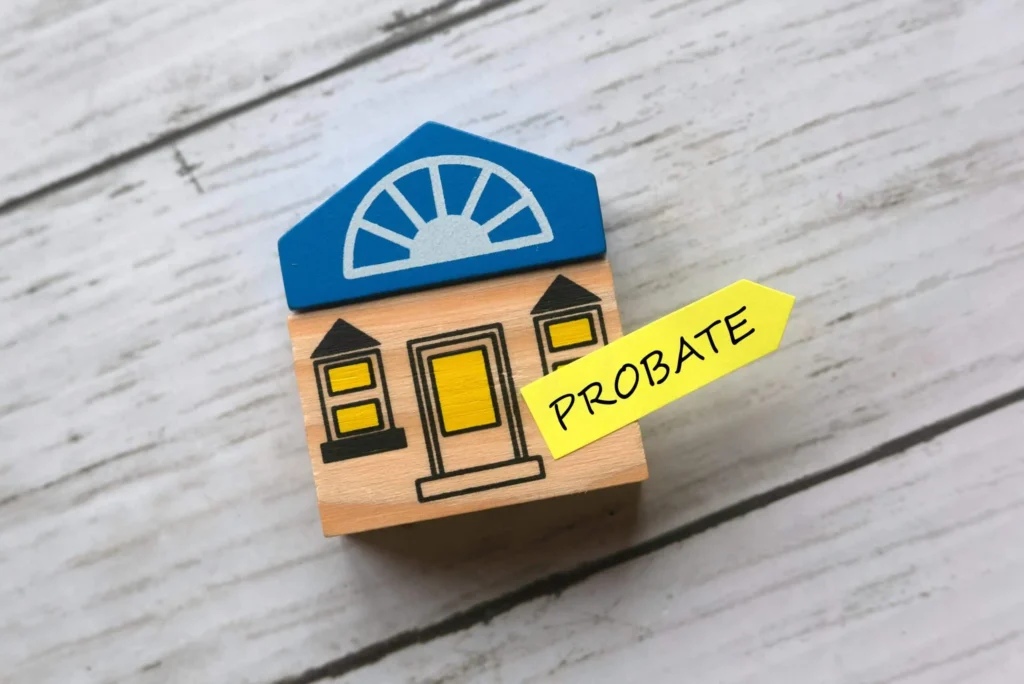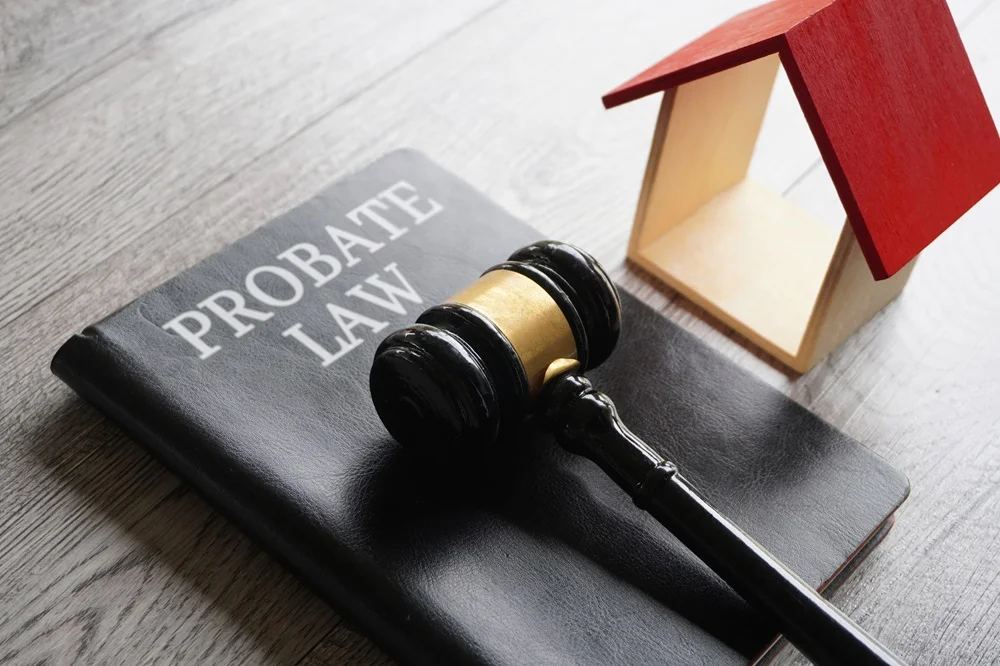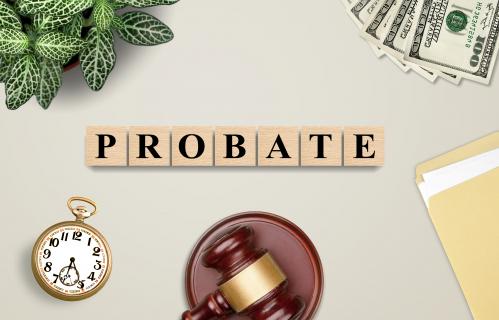Economic downturns bring with them a unique set of challenges, and when it comes to probate, these difficulties can intensify. Dealing with the probate process for real estate is already a complex legal and financial task, but in an environment of falling property values, restricted liquidity, and uncertain market conditions, executors and heirs face additional hurdles. For those in Texas, where probate laws have their unique procedures and nuances, understanding how to manage these challenges becomes even more critical.
This comprehensive guide will walk you through everything you need to know about handling probate for real estate in Texas during economic downturns, from the legal framework of Texas probate to tips for maximizing estate value under challenging market conditions.
Understanding the Texas Probate Process for Real Estate
Probate is the legal process through which a decedent’s estate is administered, including settling debts and distributing assets to heirs. For real estate, this typically involves identifying property owned by the decedent, ensuring all legal titles are clear, settling any associated debts (like mortgages), and determining how and when the property will be passed on to beneficiaries.
In Texas, probate law is guided by a few key principles:

- Independent vs. Dependent Administration: Texas offers independent administration, which allows executors to manage estates with less court involvement, which can make the process quicker and less costly. In economic downturns, this flexibility is critical in making timely decisions about real estate.
- Community Property Rules:Texas is a community property state, meaning that property acquired during a marriage is generally considered jointly owned. When one spouse passes away, probate may need to account for surviving spouse rights.
- Homestead Protections: Texas offers certain homestead exemptions, protecting the primary residence of a decedent from creditors in some cases. This can become a key asset-saving feature during economic hardship.
Challenges Faced During Economic Downturns
Economic downturns affect the housing market in significant ways. Property values tend to fall, liquidity becomes tight, and buyers often become scarce, making real estate harder to sell quickly. These challenges can complicate probate, especially when there are multiple heirs, outstanding debts, or tax obligations.
Some of the common problems include:
- Decreased Property Values: Executors may find that real estate appraises for much less during an economic downturn, which can affect how much the estate is worth. This decline in value might delay the distribution of assets and create tension between beneficiaries.
- Mortgage and Debt Liabilities:If the decedent had mortgages or other debts tied to the property, the executor must decide how to pay those obligations. If there aren’t sufficient liquid assets in the estate to cover these debts, selling the property might become the only option – even if it’s at a lower value.
- Slower Sales Market: Finding a buyer in a down market can be difficult, and properties may sit unsold for longer periods, delaying the probate process.
- Increased Holding Costs: In the interim between death and probate completion, the estate must continue to pay property taxes, insurance, and maintenance. During a recession, cash flow may be tight, making it more burdensome for the estate to cover these ongoing costs.
How to Handle Texas Real Estate Probate in Economic DownturnsStep-by-Step Guide to Handling Probate Real Estate During Economic Downturns
Step 1: Appraisal of the Property
One of the first steps in the probate process is obtaining an accurate appraisal of the property. During an economic downturn, it’s important to get a professional appraisal that takes into account current market conditions. Some executors may choose to get multiple appraisals to ensure the most accurate value, especially since lower property values could lead to disputes among beneficiaries.
Step 2: Evaluating the Estate’s Debts and Liabilities
Probate involves settling all debts before distributing assets to heirs. For real estate, this includes any mortgages, home equity loans, or property taxes owed. During an economic downturn, it’s vital to assess whether the estate has sufficient liquidity to cover these obligations without selling the property at a loss. If the real estate is underwater (meaning the mortgage exceeds the current property value), the executor will need to consider creative strategies for handling the debt.

Step 3: Maintaining the Property
The executor is responsible for maintaining the property throughout the probate process. This means ensuring that the house stays in good condition, and paying insurance premiums, property taxes, and sometimes HOA fees. During economic downturns, it’s tempting to cut corners to save on expenses, but neglecting the property could result in a further decrease in its value or complications when it comes time to sell.
Some cost-saving measures may include:
- Renting out the property temporarily to generate income to cover carrying costs.
- Negotiating lower property insurance premiums if the home will remain unoccupied for a period.
- Seeking property tax deferrals or exemptions, particularly for homestead properties.
Step 4: Deciding Whether to Sell or Hold the Property
One of the biggest decisions an executor faces in a down market is whether to sell the real estate immediately or hold onto it in hopes that the market will improve. There’s no one-size-fits-all answer, as the right move depends on the specifics of the estate, the condition of the property, and the needs of the beneficiaries.
Factors to consider include:
- Liquidity needs: Does the estate need immediate cash to pay off debts or distribute assets? If so, a sale may be unavoidable.
- Market conditions: In some cases, holding onto the property for a few months or years could result in a higher sale price once the economy stabilizes.
- Beneficiary preferences: If the heirs are willing to take ownership of the property, it may make more sense to transfer it to them, allowing them to decide on its future.
Step 5: Marketing the Property for Sale
If the decision is made to sell the property, navigating the real estate market in an economic downturn requires careful planning. The executor will need to hire a real estate agent experienced in probate sales and economic downturns to help set a realistic asking price and market the home effectively.
Key strategies to consider:
- Pricing competitively: Setting a competitive price in line with current market conditions will help attract buyers faster, which can be critical in a slow market.
- Highlighting unique features: Emphasize any unique attributes of the property, such as its location, proximity to amenities, or future investment potential, to make it stand out.
- Targeting investors: In economic downturns, real estate investors are often looking for deals. Marketing the property to this audience may lead to a faster sale.
Step 6: Dealing with Offers and Negotiations
In a down market, buyers may try to negotiate aggressively, offering prices far below the property’s appraised value. Executors need to be prepared to handle these negotiations and may want to consult with real estate professionals to determine the best course of action.
While it may be tempting to accept a low offer just to move the process along, it’s important to consider whether holding out for a better price could yield a higher return in the long run. Executors also need to be transparent with beneficiaries about these decisions, as they directly impact the distribution of estate assets.
Step 7: Transferring Property to Beneficiaries
If the decision is made to transfer the real estate to beneficiaries rather than sell it, the executor will need to ensure all necessary legal paperwork is completed. This includes filing deeds, ensuring property titles are clear, and working with a probate attorney to finalize the transfer.
During economic downturns, some beneficiaries may prefer to take ownership of the property rather than receive cash from a sale. In these cases, the executor ensures that all parties agree to the arrangement and divides the property fairly according to the terms of the will or Texas intestacy laws.
Special Considerations for Texas Real Estate During Economic Downturns
1. Homestead Protections
Texas homestead laws protect certain real estate from creditors, which can be a significant advantage during economic downturns when cash flow is tight. If the property in question is the decedent’s homestead, it qualifies for exemption from sale to pay off debts, allowing it to pass directly to the beneficiaries without risk of foreclosure.
2. Property Tax Deferrals
Homeowners over 65 or disabled individuals in Texas can defer property taxes on their homesteads until they sell the property or settle the estate. This can be particularly helpful in times of financial hardship, as it reduces the carrying costs of holding onto the property during probate.

3. Community Property Considerations
In Texas, you must consider community property laws when handling real estate in probate. When the decedent is married, determining the surviving spouse’s share of the property complicates the probate process, especially during economic downturns with fluctuating valuations.
Conclusion: Navigating Probate Real Estate During Economic Downturns
Handling probate for real estate in Texas during an economic downturn presents unique challenges, but with careful planning and an understanding of Texas probate law, executors can make informed decisions that protect the estate’s value and honor the decedent’s wishes. By considering factors like current market conditions, liquidity needs, and legal protections like homestead exemptions, executors can chart a clear path through the complexities of probate and real estate management even in tough times.
The key is to remain patient, seek professional advice when necessary, and communicate openly with beneficiaries throughout the process. Executors can effectively manage the estate and handle the property in the best possible way, even during economic challenges.









